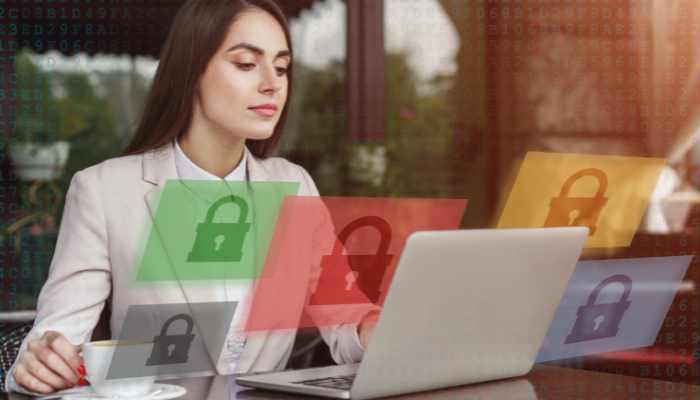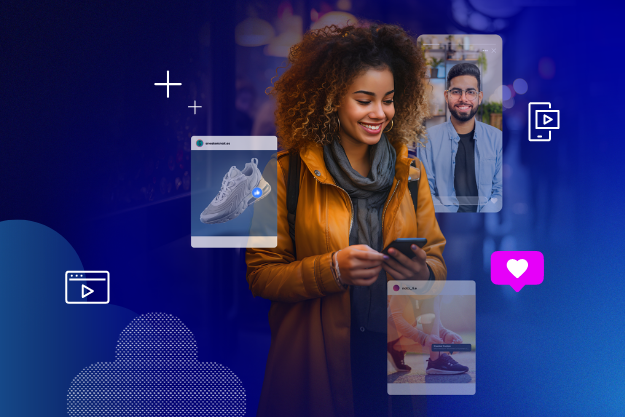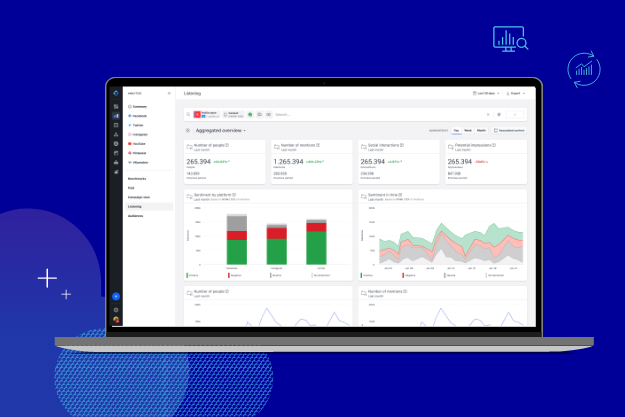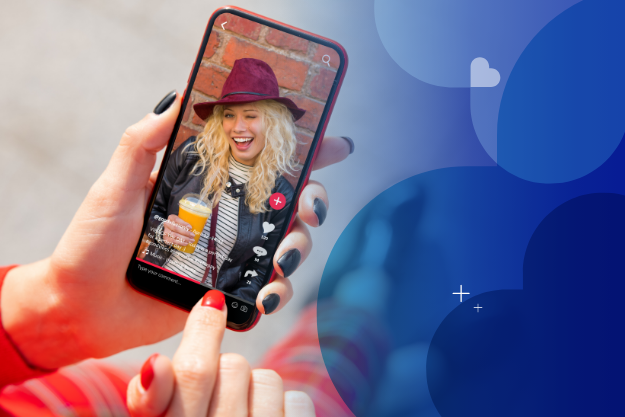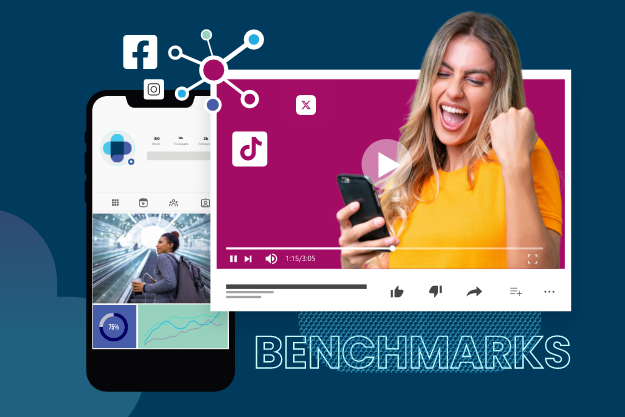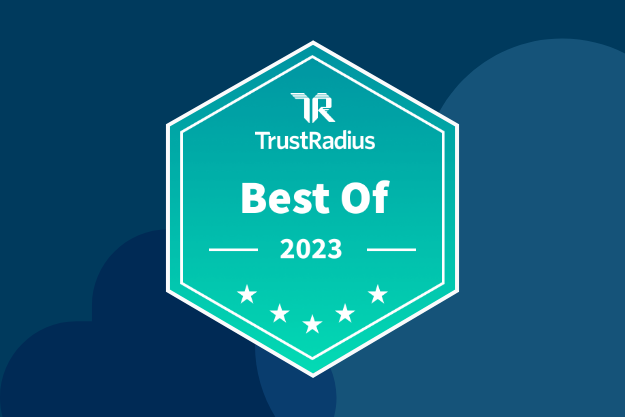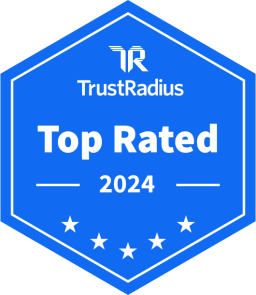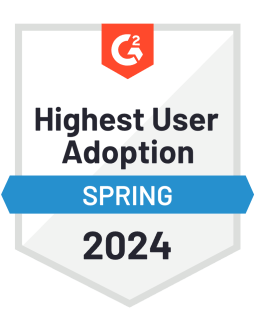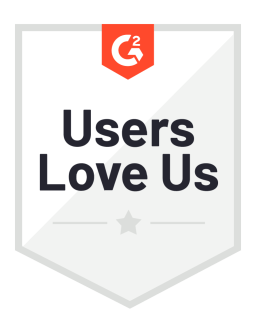Whether you're an average netizen or a professional social media marketer, you probably know that the digital sphere isn't as wholesome as it would be in an ideal world. Instead, you can encounter spammers, fake followers, impersonators, trolls, and other users with the potential to negatively impact your social strategy.
As a marketer or eCommerce executive, it's vital to equip yourself with the right cybersecurity tools to protect yourself against common digital threats. While cybersecurity is an ever-evolving field that most marketers aren't an expert in, staying on top of potential privacy and brand safety issues can drastically improve your brand's digital strategy.
Why cybersecurity is crucial for everyone
First, let's familiarize ourselves with some of the most common cybersecurity threats lurking out there. After all, knowing your opponent is the first step to victory.
While the average person doesn't have to worry about these threats constantly, social media influencers and marketers are more likely to be targeted because of their digital footprint and frequent activity on various platforms.
Phishing attacks: Hackers try to steal your account credentials by creating fake websites or emails where you have input your login details. Once you do that, they quickly log into your account and change the password, leaving you without access.
Social engineering attempts: Social engineering involves collecting personal information about the victim, impersonating someone they know, and crafting a personalized message. It'll try to trick you into doing some activity (click on a link, send some money, etc.) for their benefit.
Virus-infected ads: The internet is rife with unwelcome advertisements that are intentionally difficult to remove. Sometimes clicking a suspicious ad's call-to-action (CTA) also infects your device with malicious software, aka viruses.
Online trackers: Many are familiar with online cookies that collect metrics about browsing activities to craft a personalized experience. However, some can overstep their bounds and significantly undermine your digital privacy.
Malicious software: Like the infamous Trojan horse, trojan viruses enter your device by appearing as harmless necessities. They can take the form of email attachments, torrent files, and other freebies. These viruses can wreak havoc on your device in a wide range of ways.
Man-in-the-middle attacks: Using poorly secured public networks exposes you to interception and data theft. Hackers can even siphon your credit card information if you're ever online shopping on the go.
Data leaks: Sometimes, a website or online service contains a vulnerability that hackers exploit. Then your information ends up exposed through no fault of your own. Luckily, a good security tool will immediately inform you and suggest a course of action.
As you can see, malicious actors have various options for targeting individuals. Thankfully, you can avoid these issues with a handful of tools and best practices. Many cybersecurity tools can prove beneficial to social media marketing specialists. Let's dive in!
Essential social media cybersecurity tools
Every person should have these three programs available before diving into the depths of the World Wide Web, especially social media managers running brand campaigns and collecting data from the Internet.
Virtual Private Network
Virtual Private Networks (or VPNs) are primarily used for anonymity. They grant it by redirecting your connection through secure encrypted servers scattered worldwide. This maneuver hides a user's actual whereabouts and IP address while making it appear that they are connecting from somewhere else.
Besides confidentiality, you can use a VPN to change your location and bypass geographical restrictions or online censorship. A good VPN can also improve your connection speed and promote uninterrupted access to the social media networks you frequently interact with.
Most importantly, a VPN connection makes you immune to surveillance while your connection is protected against man-in-the-middle attacks. That means you need a VPN if you're a fan of working in public spaces with Wi-Fi networks of varying quality and security levels.
Password manager
Reusing passwords is a recipe for disaster because a single data leak can potentially expose more than one account. As a social media marketer managing accounts across multiple social platforms, this is one of the best ways to protect your brand from being hacked.
Luckily, password managers can remedy these issues by storing complex passphrases (and suggesting them) in a secure and easily accessible location. Then you won't have to remember your passwords or worry about severely damaging data leaks. Best of all, some of the best services will notify you if your information is compromised.
Antivirus program
As the name suggests, antivirus programs protect your device against virus-infected software. It's vital to pick reliable services for this task because new digital viruses are made practically every day, which means you need equally-diligent protection. These tools will also scan your device and delete unnecessary files that hinder performance.
On the other hand, most operating systems have default security measures in place. Plus, a VPN is capable of blocking malicious web domains used for distributing malware. Lastly, you won't even need software solutions if you're cautious and avoid suspicious files or links.
It's worth noting that some companies offer all three in one package, allowing you to cover every possible cybersecurity front conveniently. It's crucial to research possible products if you want the best results — don't just pick the least expensive option.
How marketers benefit from Cybersecurity tools
So far, we've discussed how cybersecurity tools protect you and your online assets against digital dangers. However, social media marketers can use these tools, VPNs in particular, to their advantage.
Explore the web from a foreign perspective: Most websites tailor the experience differently to foreign markets. You won't know what it looks like unless you change your location with a VPN. Then you can analyze how services appeal to different audiences, a valuable strategy for global brands.
Mask your identity: Some marketing campaigns require hiding your identity and place of origin. At the very least, you'd want the option to mask your IP address if it ever gets blocklisted for whatever reason.
Secure connections to shared resources: You can use business-oriented VPNs to protect crucial information and make it exclusive to your associates. Additionally, a VPN allows you to work remotely and retain access to essential resources anywhere.
Social media marketers and influencers must take cybersecurity seriously because they're lucrative targets for online threats. You'll need protection against spammers, impersonators, stalkers, and technical nuisances like ads or trackers. These tools can improve your business and research potential, so consider working with your team to ensure you have an optimal cybersecurity setup in place.
Editor's Note: This article was originally published on pixlee.com. Any statistics or statements included in this article were current at the time of original publication.













